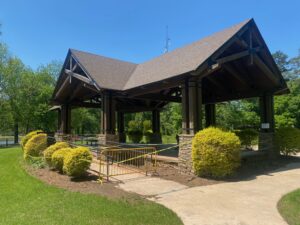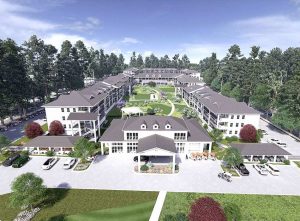The latest tweaks to Peachtree City’s new celltower ordinance will allow new towers in two new zoning categories currently not allowed by the existing ordinance. The city is opening up new towers for property zoned general commercial and office institutional as long as they meet the remainder of the city’s setback rules for new towers.
The reasoning behind this change is that cellphone companies can benefit from the strategic location of the city’s village shopping centers as a way to accomplish their goal of bringing cellular signals closer to the city’s residential areas.
Representatives of three cellular companies have said they lack coverage and have signal weakness issues in the city’s residential areas where under the existing ordinance no land is available to locate new towers.
Two such attorneys at Monday night’s planning commission meeting agreed that the addition of general commercial and office institutional lots will expand the number of potential celltower sites.
Currently the city only allows celltowers on property zoned open space, light industrial and general industrial. The commission voted unanimously to recommend adoption of the ordinance to the Peachtree City Council, which has the final say on the matter.
There may be one possible moving target remaining in the ordinance. The latest version of the ordinance requires a 250-foot setback from any residential lot, church, school or daycare facility.
There was some concern that a 100-foot setback from city roads and streets might supersede the larger 250-foot setback from homes, churches, schools and daycares the way the ordinance is written, so staff will be looking into that possibility.
When informed that the reasoning for the 250-foot setback from churches, schools and daycares was due to the congregation of children at those locations, resident Robert Brown asked how city recreation areas are any different.
Planning Commissioner Joe Frasar noted that children won’t be at recreation areas and sports fields for over four to six hours a day such as they would at a school, nursery or church daycare facility for example.
“Maybe,” Brown replied.
The new ordinance, which must ultimately be approved in some fashion by the Peachtree City Council, requires the removal of any celltower that goes unused for six months or more.
The city will require a performance bond for all new towers so there will be funds available for the city to demolish the tower if the celltower owner fails to do so.
The new ordinance also requires cellphone companies to prove they cannot locate on a nearby tower before the city approves any new celltower construction in a given area.
The city also may add language clarifying what constitutes use of a celltower, as Planning Commissioner Patrick Staples suggested that without the language a celltower owner could “slap something up there” just to avoid the cost of demolishing the tower.
Mary Giles, a south Peachtree City resident who has been critical of the possibility that celltowers could be built in city parks and recreation facilities, said she was particularly appreciative of the detailed example maps that showed the small areas on which celltowers could be built in a given park or recreation facility.
“This is exactly what a lot of us have been looking for,” Giles said, thanking planning staffers David Rast and Tony Bernard. “I think it’s awesome. Thanks so much for the work you have done.”










Leave a Comment
You must be logged in to post a comment.